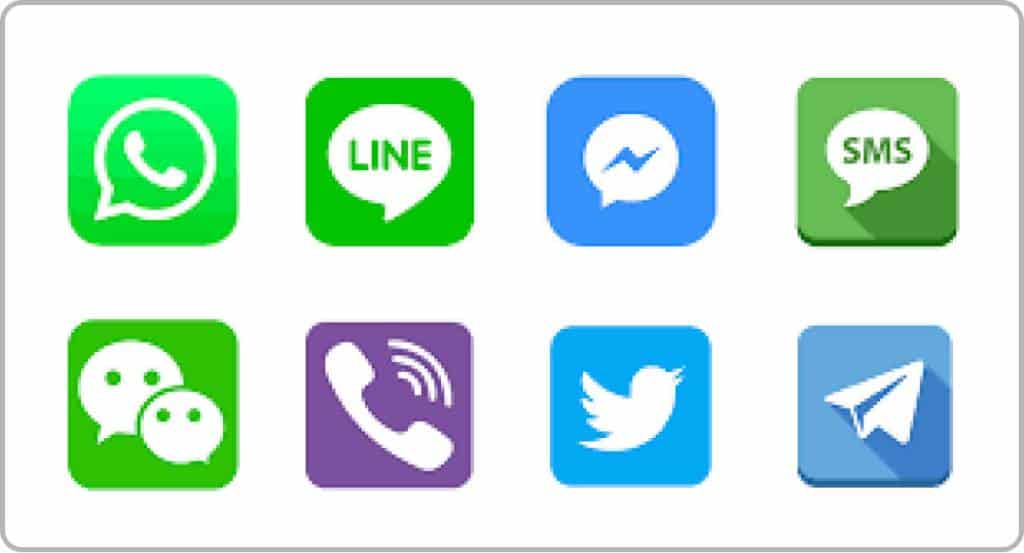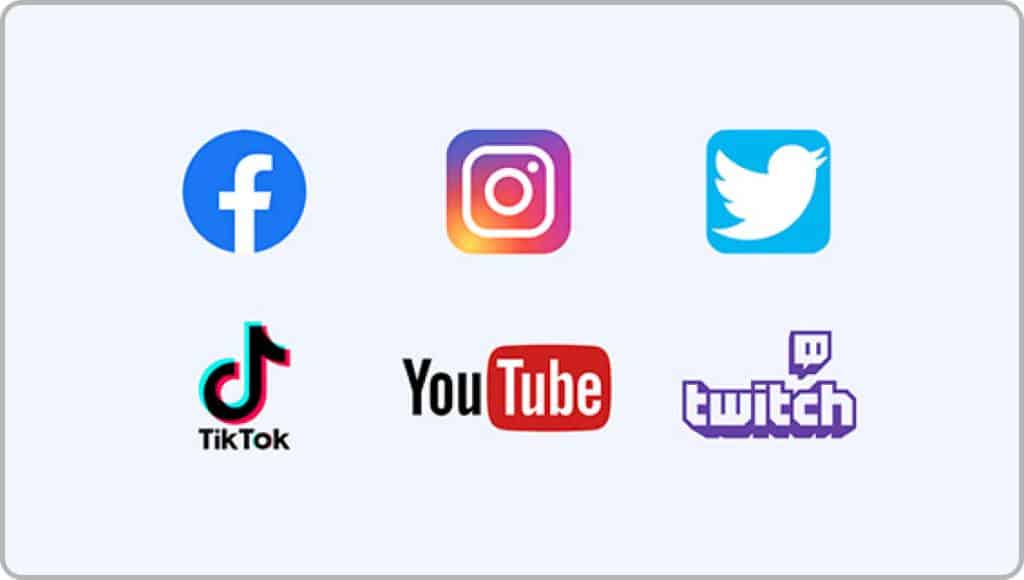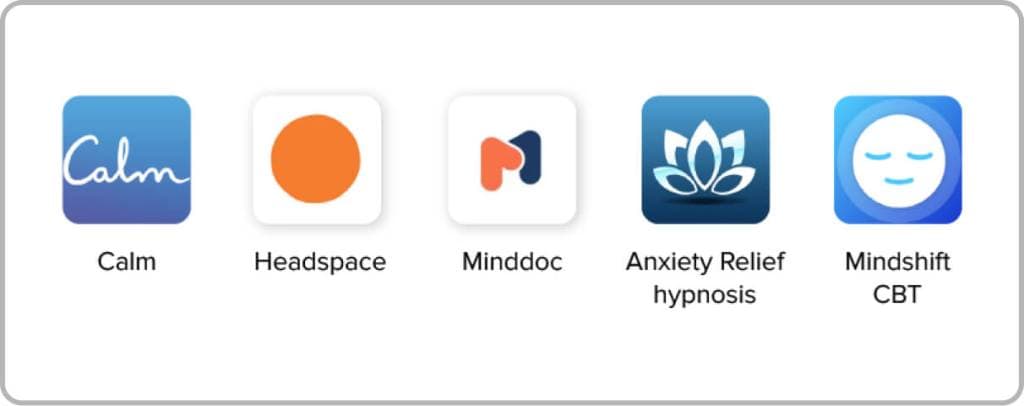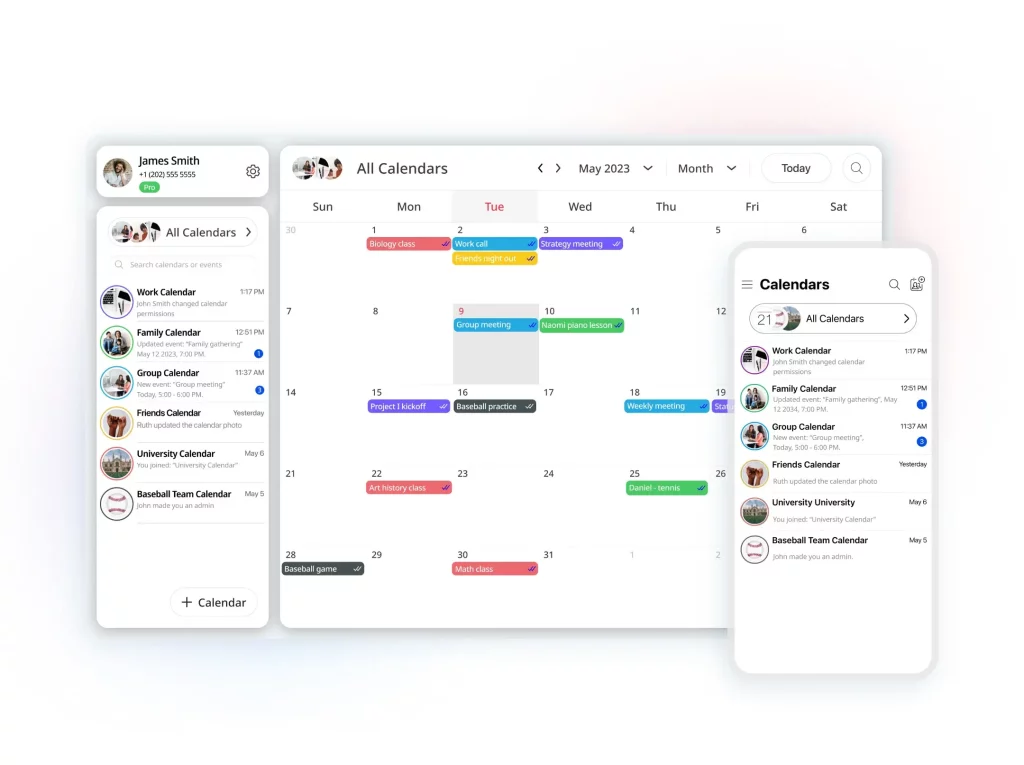
Introduction
Technology is evolving at an unprecedented rate, shaping the way we interact, communicate, and experience life. Mobile apps have played a pivotal role in this digital revolution, constantly redefining traditional concepts and bringing forth innovative approaches. This article delves into how traditional apps have given way to new and efficient concepts, and what lessons we can learn for calendar apps.
In the following sections of this article, we will explore how various app categories have experienced a transformation and compare it to the state of the calendar category. We will then discuss the future of calendar apps, examining the gaps in their adoption of new concepts and the potential for new era shared calendars like GroupCal to revolutionize time management and collaboration.
Messaging: Emails → Instant Messaging

In the early days of digital communication, emails were the primary mode of exchanging messages. Email communication brought numerous advantages, such as the ability to send text-based messages, documents, and images quickly and conveniently. However, as technology continued to evolve, the limitations of email communication began to emerge.
In recent years a new messaging concept emerged – Instant messaging. It has revolutionized the way we connect and interact with others. Instant messaging apps like WhatsApp, Slack, and Telegram offer real-time communication, multimedia sharing, and typing indicators, fostering seamless conversations and efficient information exchange. Embracing these advancements has become integral to staying connected in today’s dynamic world.
Dating: Traditional Dating Apps → Sliding / Video Dating Apps

Traditional dating apps followed a more conventional approach, where users created profiles with personal information, photos, and interests. They relied on text-based communication, messaging back and forth to get to know each other. While these apps provided a platform to meet new people, they often required a significant time investment to filter through profiles and initiate conversations. The process of finding a compatible match could be time-consuming and overwhelming, especially for those seeking genuine connections.
However, the dating app landscape underwent a transformation with the introduction of the Tinder-style swiping format. This innovative concept simplified the process by allowing users to make quick decisions based on visual impressions. Users were presented with profiles accompanied by photos, and they could swipe right to show interest or swipe left to pass. This gamified approach made the dating experience more efficient and enjoyable, enabling users to focus on potential matches that piqued their interest.
Moreover, video dating apps further reshaped the dating scene by incorporating real-time interactions. Apps like Bumble, Hinge, and Zoom Dating allowed users to connect face-to-face, even from a distance. This concept proved especially valuable during times when meeting in person might be challenging, such as during travel restrictions or pandemic situations. Video dating enabled individuals to forge connections beyond text-based conversations, fostering more meaningful interactions and a deeper understanding of potential matches.
The combination of the Tinder-style swiping format and video dating has revolutionized the dating landscape. It has brought greater efficiency, authenticity, and convenience to the dating experience, making it easier for individuals to find meaningful connections and build relationships in today’s fast-paced world.
Navigation: Traditional Maps → GPS-based apps

Before the advent of GPS-based apps, navigation relied heavily on traditional map apps like MapQuest and Yahoo Maps. These map apps provided users with static maps and directions, but they lacked real-time updates and accurate traffic information. Planning a route involved printing out maps or jotting down directions, making it challenging to adjust to unexpected changes in traffic or road conditions.
Furthermore, traditional map apps offered limited interactivity and features, making it difficult to find points of interest, nearby amenities, or alternate routes in real-time based on traffic conditions.
However, the emergence of GPS-based apps like Waze and Google Maps transformed the navigation landscape entirely. These apps leverage Global Positioning System (GPS) technology to provide real-time, turn-by-turn navigation with live traffic updates. Users can simply enter their destination, and the app will calculate the fastest route, taking into account real-time traffic conditions. Voice-guided instructions and interactive maps guide users seamlessly through their journey, providing a level of accuracy and convenience that traditional map apps couldn’t match.
Entertainment: Pre-recorded Streaming → Live Streaming

Entertainment has also undergone a transformative shift with the rise of live streaming apps like Twitch and YouTube Live. Instead of solely relying on pre-recorded videos, users now engage with real-time content and broadcasts, fostering a more interactive and immersive entertainment experience.
Fitness: Physical → Wellness Apps

Before the rise of wellness apps, fitness apps primarily focused on tracking and improving physical fitness. These apps allowed users to monitor their steps, count calories, and track workouts to achieve specific fitness goals. While they provided valuable data on physical activity, they lacked a comprehensive approach to overall well-being.
Mental health and wellness were often treated as separate aspects of one’s health, leading to a fragmented approach to self-care. Users had to switch between different apps to manage their physical fitness and mental well-being, which could be cumbersome and time-consuming.
However, with the emergence of wellness apps like Calm, Headspace, and Fitbit, the landscape of fitness apps has evolved significantly. These wellness apps offer a more holistic and integrated approach to health, recognizing the vital role that mental health plays in overall well-being.
Wellness apps provide users with tools for meditation, mindfulness practices, stress reduction, sleep tracking, and emotional support. By incorporating these features alongside traditional fitness tracking, these apps encourage users to focus on their overall wellness and establish a balanced and harmonious lifestyle.
What about the Calendar Category?
While apps in various categories have experienced profound advancements, calendar apps have seen relatively limited innovation. Most digital calendars are digital replicas of traditional pen and paper calendars, missing out on the opportunity to adopt modern concepts for efficient time management.
Time for Change

In the context of calendar apps, social and connectivity concepts refer to the seamless integration of calendars with social groups and other connected platforms. Just like how instant messaging apps connect users with their social circles for communication, calendar apps should also be able to automatically sync with relevant social groups, similar to how chat apps are connected to these groups.
We believe the time is ripe for such change. Calendars should evolve to provide users a modern time management experience, and GroupCal strives to lead this evolution.
With social and connectivity concepts, GroupCal takes calendar management to a whole new level. Users can join dedicated calendars for each of their important groups, whether it’s for family, work, or community activities. By joining these calendars within GroupCal, their calendar will update automatically when changes relevant to their schedule happen. Users can therefore effortlessly manage their schedules and stay updated on group activities without the need for manual updates.
Imagine being part of a class, and every time a new assignment or event is added, it automatically reflects on your calendar. You receive real-time updates and push notifications, ensuring that you never miss important class deadlines or meetings.
Moreover, the social and connectivity concepts in GroupCal extend beyond just syncing calendars. It also enables users to share their calendars with others, allowing for seamless collaboration and event planning. For instance, a community organization can use GroupCal to share the group’s calendar with members, ensuring everyone is informed about upcoming events and activities.
Additionally, GroupCal offers a unique feature for professionals and companies. Users can separate their personal calendar account from their business account, providing a clear distinction between personal and professional events. This ensures privacy and data security while still allowing seamless integration between the two calendars for efficient time management.
In conclusion, GroupCal’s integration of social and connectivity concepts transforms calendar management into a more dynamic and collaborative experience. By automating calendar syncing and fostering seamless communication, GroupCal empowers users to efficiently manage their time, stay connected with their social groups, and experience a new era of productivity and organization. As we look to the future, these social and connectivity concepts will play a crucial role in shaping the next generation of calendar apps, and GroupCal is leading the way towards this exciting revolution.
Conclusion
The new era of apps is an exciting journey of constant innovation and reimagining traditional concepts. From communication and dating to e-commerce and navigation, every aspect of our digital lives has been touched by advancements that enrich our everyday experiences. However, one area that has yet to fully embrace the potential of modern app concepts is calendar management.
Traditional calendars have long served as a tool for time management, but they have not evolved to keep pace with the seamless communication and collaboration offered by modern platforms. Calendars have remained static, requiring manual updates and lacking real-time synchronization.
This presents an exciting opportunity for the future of calendar apps, just like how other apps have reimagined traditional concepts. By adopting the social and connectivity concepts seen in instant messaging apps, calendar apps can revolutionize how we manage time and stay connected with our social groups.
GroupCal, with its incorporation of instant messaging concepts into calendar management, leads the charge towards this transformation and offers a glimpse into the potential of modern calendar apps.
Imagine how your calendar seamlessly syncs with your family, work, and community calendars, keeping you updated on all relevant events and activities in real-time. That’s the GroupCal vision.